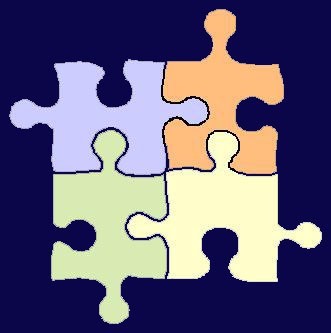Is Asperger’s Syndrome a disability or a different ability? While both have some truth to them Asperger’s Syndrome, for those who are diagnosed in adulthood doesn’t have to be a negative disabling isolating reality. Understanding your differences more and
accepting them will enable you to succeed.
Ability is defined in Webster’s New World Dictionary, Third College Edition, as “being able,” “power to do,” “skill or talent,” “capacity or tendency,”
Disability is defined in Webster’s New World Dictionary, Third College Edition, as (among other things) “something that restricts;
limitation, disadvantage.”
However, what one thinks of as restricting or limiting or a disadvantage may for another be made to be the “power to do,” a “skill or talent,” a matter of a different “capacity or tendency.”
In other words, what is literally defined as a disability can in fact be turned into many different kinds of abilities by those with Asperger’s Syndrome (AS).
Notwithstanding that there are arenas in which AS is a challenge and I’ll admit can even feel like a disability I think what’s most relevant here is how one thinks about this. If you focus on the negative then AS will be mostly about being a disability for you. If you focus on the positive AS will speak volumes to the joy of difference that even if difficult at times is as much, if not more, about difference than it is
about being disabled.
It’s all a matter of perspective. We all need to learn, more and more, each and every day, to be more open to one another as citizens of this world that we share. We need to embrace differences.
All-too-often we categorize and pathologize differences because what is not “like” us is not always understood and therefore tends to be threatening when we let it be.
Each and every person wants, needs, and seeks to be understood and validated for who he/she is. Sameness has somehow become this cherished thing that more often than not leads to acceptance and inclusion. Whereas differences have become threatening,unwanted, and unaccepted and continue all-too-often to lead to rejection, judgment, and exclusion.
In so far as Asperger’s is not understood by many, yes, there is a component of it being a disability there. The differences that adults
with Asperger’s present, particularly in relating and the area of socializing and to some degree just communicating, is to varying
individual degrees a disability. How much of a disability this really remains in one’s life, is also individual and depends upon many factors
other than just having AS. It depends upon willingness to accept difference, to think outside of the NT-box, and whether or not one
focuses on the down side or the up side.
Having Asperger’s offers wonderful opportunities to take in all kinds of information of special interest, to remember most
things very well, to think way outside the box and to be quite unique in many ways. The very high intelligence that is seen in most with
AS is testament to an largely untapped gold mine of resources, talents and strengths.
Each Aspie adult, when being challenged and struggling in some areas of socializing, communicating, relating or what have you
must remember that with the deficits and challenges come also the gifts and blessings.
If you have AS and/or if you have someone in your life you love and/or care about who has AS, you will be so surprised what joy can be found in all of the differences when you focus on the
gifts and the blessings.
Everyone has different abilities. Everyone has weaknesses and challenges in life. Everyone has strengths. Adults with Asperger’s Syndrome, while different in some ways, aren’t entirely different.
What the question really boils down to when asking if AS is a disability or more about a different ability is whether or not you
think there is only one way to communicate, to socialize, to relate or to desire to relate to the world. It depends upon your perspective and whether or not you are open-minded enough to
those who live outside of the box.
Living with Asperger’s Syndrome, and mainly living outside of the NT box myself, I have to say that while there have been times I’ve allowed myself to be described as disabled or less able that was when I compared myself to others in a black and white way.
When I accept that I am different in certain areas of life and relating than most and don’t judge that as good or bad I find a lot of peace and joy inside of myself for just being who I am
and how I am. There is an inherent freedom in AS that I am learning to celebrate more and more. While there is some pain and frustration at times I’m sure this is the case in the average
ebb and flow of anyone’s life, AS or not.
Each of us has unique ability that although at times applied differently, when accepted, understood and valued can mean the difference between a life in pursuit of ability or a life lost to alienation, isolation and the
desolation of having been branded disabled and having believed it to the degree that one does not seek to spread his or her individually unique
wings and fly in the unfolding wind of their most intense interest and wildest dreams.
© Ms. A.J. Mahari 2004



